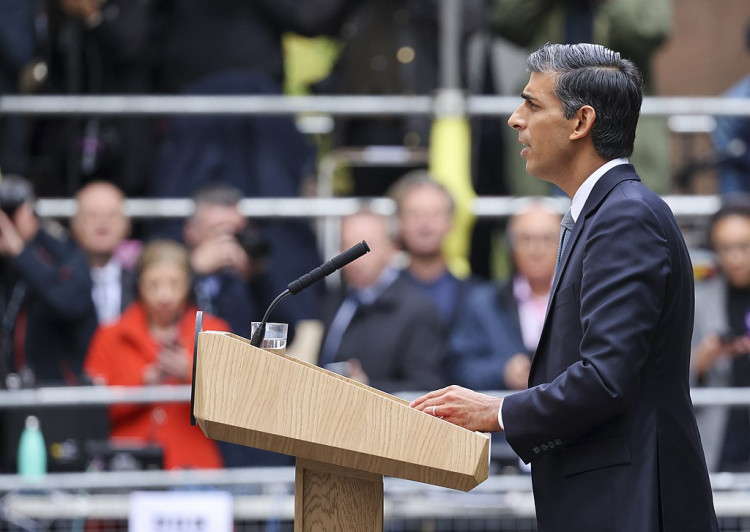British Prime Minister Rishi Sunak has announced that the UK will increase its defence spending to 2.5% of national output by the end of the decade, in a move described as the "biggest strengthening of our national defence in a generation." The commitment, unveiled during Sunak's visit to Poland, comes after months of pressure from Conservative MPs and defence officials to boost military spending in response to the growing threat from Russia and other authoritarian states.
Under the new plan, the UK will steadily increase defence spending to £87bn a year by 2030, representing a cumulative extra £75bn in core defence funding over the next six years. Sunak stressed the importance of this investment in a speech alongside Nato Secretary General Jens Stoltenberg in Warsaw, stating, "In a world that is the most dangerous it has been since the end of the cold war, we cannot be complacent. As our adversaries align, we must do more to defend our country, our interests, and our values."
The prime minister emphasized that the UK is facing an "axis of authoritarian states with different values to ours," including Russia, Iran, North Korea, and China, which are showing a "new assertiveness" and increasingly working together to undermine democracies. Sunak called on UK allies to match the commitment, as the country is set to become the second-largest contributor to Nato after the United States.
Downing Street confirmed that the plan is fully funded, moving from an aspiration to spend 2.5% by an unspecified date to a costed commitment to do so by 2030. The UK currently spends 2.32% of gross domestic product on defence, and it remains unclear whether an incoming Labour government would adhere to Sunak's commitment. Labour leader Keir Starmer has stated that his party would aim to raise defence spending to 2.5% of GDP "as soon as resources allow" if it wins the upcoming election.
The increased funding will be used to put the UK's defence industry on "a war footing" and deliver cutting-edge technology to equip the west to stand up to autocratic states. This includes an additional £10bn over the next decade for munitions production, pledges to reform defence procurement, and the creation of a new defence innovation agency with at least 5% of the defence budget committed to R&D.
Chancellor Jeremy Hunt, who accompanied Sunak and Defence Secretary Grant Shapps on the trip, said, "It speaks to Britain's global role that, with an improving economy, we are able to make this commitment to peace and security in Europe. It also sends the clearest possible message to Putin that as other Nato European countries match this commitment, which they will, he will never be able to outspend countries that believe in freedom and democracy."
The announcement comes as the UK also pledged an additional £500m in military funding for Ukraine from Treasury reserves, bringing the total to £3bn this financial year. Sunak welcomed the recent decision by the US House of Representatives to approve a $61bn package of new military aid for Ukraine but stressed that this does not diminish the need for Europeans to invest in their own security.






